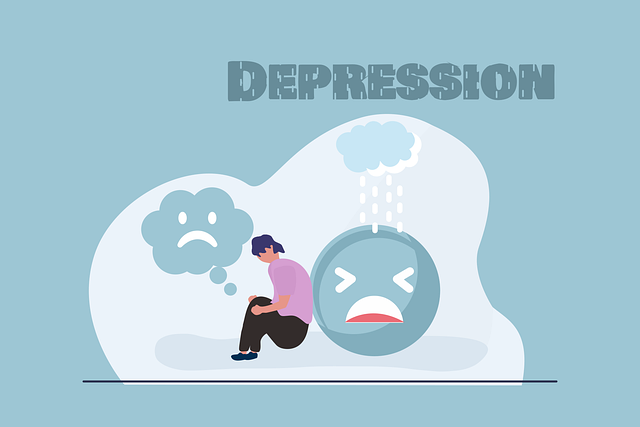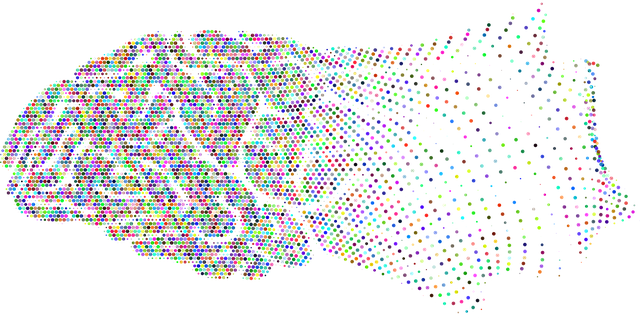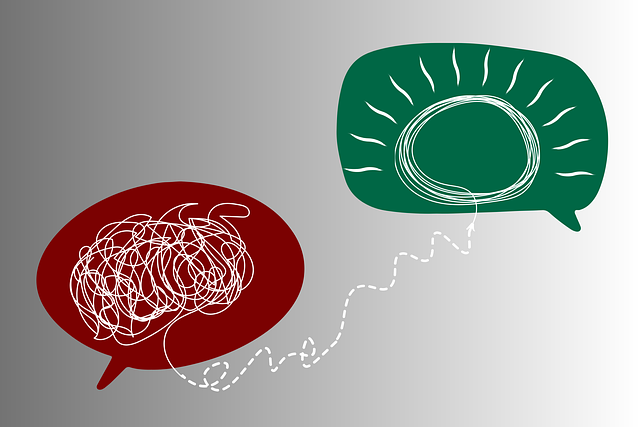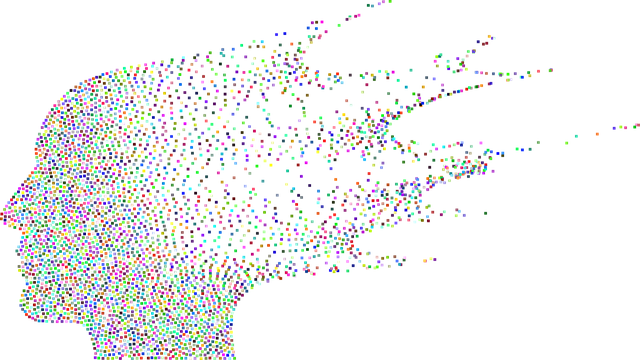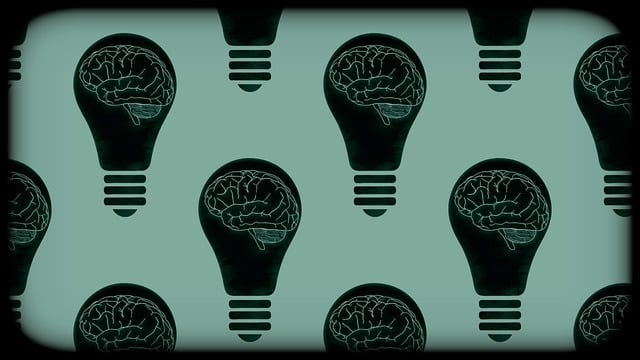Media portrayal of mental illness significantly shapes societal perceptions, often perpetuating stereotypes and misinformation that contribute to stigma and hinder support-seeking behaviors. Organizations like Littleton Suicide Prevention Therapy advocate for responsible representation, emphasizing balanced coverage that humanizes individuals with mental illnesses and showcases effective treatment options. By collaborating with mental health experts, media can foster empathy, challenge misconceptions, promote stress management strategies, and ultimately improve access to quality care through authentic narratives and diverse representations of mental wellness.
In today’s media landscape, accurate representation of mental illness is crucial for challenging stereotypes and promoting understanding. This article explores the current state of mental health depiction in media and its profound effects on public perception. We delve into the harmful impacts of misinformation and stereotypes, offering solutions for more compassionate portrayals.
Through case studies like Littleton Suicide Prevention Therapy, we highlight effective strategies involving mental health experts to ensure responsible media representation that fosters empathy and reduces stigma.
- Understanding Mental Illness Representation in Media: The Current Landscape
- The Impact of Stereotypes and Misinformation on Public Perception
- Strategies for Accurate and Compassionate Portrayal: A Case for Sensitivity
- Implementing Effective Solutions: Collaborating with Mental Health Experts
- Littleton Suicide Prevention Therapy: A Promising Approach to Media Responsibility
Understanding Mental Illness Representation in Media: The Current Landscape

In today’s digital age, media plays a significant role in shaping societal perceptions of mental illness. The current landscape often presents a distorted view, perpetuating stereotypes and misconceptions. Many narratives focus on sensationalism rather than accuracy, contributing to stigma and fear. This is particularly concerning as media has the power to influence public opinion and attitude towards individuals living with mental health challenges. For instance, portrayals of suicide, commonly used as plot devices, can have profound impacts on vulnerable viewers, potentially triggering copycat behaviors, especially among younger audiences.
The need for responsible and accurate representation is evident. Organizations like Littleton Suicide Prevention Therapy are at the forefront of this movement, advocating for balanced media coverage. By promoting stories that humanize individuals with mental illnesses, these initiatives aim to foster empathy and understanding. Moreover, they emphasize the importance of portraying effective treatment options, such as therapy and wellness coaching programs, to challenge the dominance of negative narratives. Encouraging open conversations about mental wellness and stress management can lead to better support systems and, ultimately, Depression Prevention strategies.
The Impact of Stereotypes and Misinformation on Public Perception

The media’s portrayal of mental illness often perpetuates harmful stereotypes and misinformation, significantly shaping public perception. When fictional narratives or even news coverage depict individuals with mental health struggles in a one-dimensional manner—whether as violent criminals, helpless victims, or overly dramatic characters—it reinforces false ideas in the minds of viewers. These representations can contribute to stigma, making it harder for those facing similar challenges to seek support and understand their experiences. For instance, the media’s frequent association of mental illness with violence increases the fear and misunderstanding surrounding these conditions, hindering people from accessing essential services like Littleton Suicide Prevention Therapy.
Moreover, the absence of diverse and authentic stories can lead to a lack of empathy and cultural sensitivity in mental healthcare practices. Incorporating more accurate representations that reflect the real-life experiences of individuals across various demographics is crucial. Encouraging mental wellness journaling exercises or coping skills development through guidance from culturally sensitive professionals can help counterbalance negative stereotypes. By challenging these misconceptions, media platforms play a pivotal role in fostering a more compassionate and informed society, ultimately improving access to quality care, such as that provided by Littleton Suicide Prevention Therapy services.
Strategies for Accurate and Compassionate Portrayal: A Case for Sensitivity

Media has a significant influence on shaping societal perceptions and understanding of mental health. To effectively challenge stigma associated with mental illness, accurate and compassionate representation is crucial. This involves careful consideration of symptoms, treatment approaches, and narratives surrounding individuals affected by mental health conditions. Sensitivity in portrayal can foster empathy among audiences and encourage support for those facing challenges.
Organizations like Littleton Suicide Prevention Therapy exemplify efforts to promote positive change through media engagement. They advocate for the implementation of community outreach programs that emphasize compassion cultivation practices and stress management workshops. By involving experts, sharing personal stories with authenticity, and presenting diverse representations, media can contribute to a more nuanced understanding of mental health in society.
Implementing Effective Solutions: Collaborating with Mental Health Experts

To implement effective solutions for better mental illness representation in media, collaboration with mental health experts is paramount. These professionals bring a wealth of knowledge and experience to ensure that portrayals are accurate, sensitive, and constructive. By involving psychiatrists, psychologists, and therapists like those at Littleton Suicide Prevention Therapy, media creators can avoid perpetuating harmful stereotypes and instead foster Mental Health Awareness.
This partnership can guide the development of scenarios, characters, and narratives that reflect the reality of mental wellness struggles. Expert guidance is crucial in demonstrating effective coping mechanisms, Stress Management strategies, and the power of seeking therapy. For instance, incorporating scenes where a character finds solace in Mental Wellness Journaling Exercises can offer valuable insights to viewers, encouraging open dialogue about mental health issues and promoting positive outcomes.
Littleton Suicide Prevention Therapy: A Promising Approach to Media Responsibility

The Littleton Suicide Prevention Therapy (LSPT) is a promising approach that challenges conventional media representation of mental illness. This therapeutic method focuses on empowering individuals to navigate their emotional struggles through mindfulness meditation and positive thinking techniques. By integrating emotional regulation strategies, LSPT aims to reduce the stigma associated with mental health issues, fostering a more supportive environment in media discourse.
The program’s effectiveness lies in its holistic approach, encouraging participants to take an active role in managing their mental well-being. Through regular practice, individuals learn to identify triggers, cultivate resilience, and develop coping mechanisms that promote emotional balance. This proactive mindset is particularly impactful in preventing suicide, as it equips people with the tools to seek help promptly and make informed decisions regarding their mental health.
In light of the above discussions, it’s clear that accurate and compassionate mental illness representation in media is not just a challenge but a necessity. By understanding the current landscape, recognizing the impact of stereotypes and misinformation, adopting sensitive portrayal strategies, and collaborating with mental health experts, we can significantly improve public perception. The Littleton Suicide Prevention Therapy emerges as a promising approach, demonstrating how responsible media representation can drive positive change and save lives. It’s time to revolutionize mental illness depiction in media, fostering a more informed, empathetic, and supportive society.




